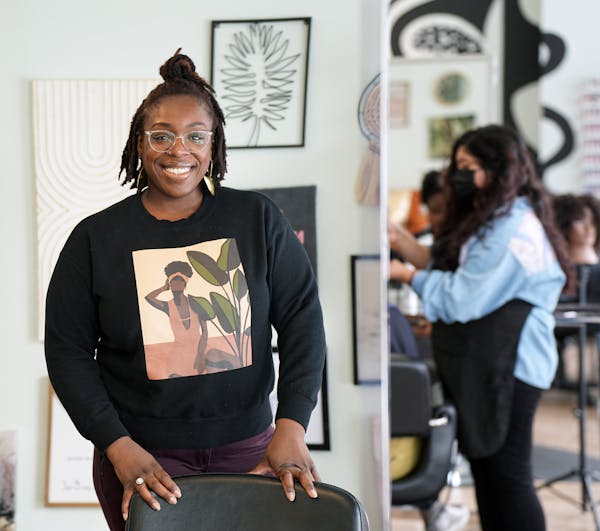State leaders ushered in the beginning of Black history month with Gov. Tim Walz signing two bills Friday: The first adds Juneteenth to the list of state holidays, and the second bans discrimination based on hair texture.
Juneteenth, which is celebrated June 19, commemorates the emancipation of enslaved Black people at the close of the Civil War. On that date in 1865, federal troops arrived in Galveston, Texas, to ensure the last remaining enslaved people were free, the action coming more than a month after the Confederate surrender at Appomattox and more than two years after the Emancipation Proclamation was signed.
Now the event is celebrated with barbecues, festivals, parades and church services. It became a federal holiday in 2021 following calls for racial equity after the murder of George Floyd. Minneapolis and St. Paul recognized it as a city holiday for the first time in 2022.
The state's newest holiday will be recognized for the first time this year, with government offices closed.
The CROWN Act, which stands for "Create a Respectful and Open World for Natural Hair," prohibits discrimination based on hair texture and type by adding a definition of race to the Minnesota Human Rights Act that includes associated hairstyles such as braids, twists and locs. Walz officially signed it earlier this week, but held a ceremonial signing Friday.
Both bills won bipartisan support in the Legislature.
Lt. Gov. Peggy Flanagan said making Minnesota the best place to raise a family includes telling the truth about who we are and where we've been as a people, and making hair discrimination illegal.
"Today's an important reminder that our nation's deep roots of oppression and racism still exist in Minnesota and across the country," Flanagan said. "We will never stop working until Black Minnesotans and Minnesotans of all races are seen and heard and valued."
The room exploded in laughter when Sen. Bobby Joe Champion, DFL-Minneapolis, who is bald, said one might wonder why he chose to carry a bill about hair discrimination. His two sons have their hair in locs, Champion said.
"I want to make sure that no matter how they decide to wear their hair, that they have the opportunity to be judged on their skills and qualifications, and they should not be discriminated against," Champion said.
Walz said Juneteenth will be a day for celebration and education in Minnesota, the 26th state to embrace the holiday.
"In Minnesota, we're not afraid to tell all of our history," he said.
Black and brown Minnesotans need their history told, and students want to be able to think critically about history, to go on and accomplish great things with that full knowledge, Walz said.
Rep. Ruth Richardson, DFL-Mendota Heights, whose parents were sharecroppers, said celebrating Juneteenth honors a more inclusive definition of freedom.
"It's an opportunity for us to reflect on the fact that there is a promise that was made to us that all are created equal, that we are still working toward," Richardson said.
Former DFL Senate Majority Leader Kari Dziedzic dies of cancer at age 62

How the Star Tribune is covering the 2024 election

Fact check: Walz and Vance made questionable claims during only VP debate

In Tim Walz's home city, opposing groups watch him debate on the national stage

